Robert Bresson was a French film director and screenwriter known for his unique style and minimalist approach to filmmaking. Bresson’s films were characterized by their spare storytelling, stark visual style, and non-professional actors.
He explored themes such as the human condition, morality, and spirituality, often with an existentialist or Christian perspective.
Bresson’s work had a profound impact on the world of cinema, and he is widely regarded as one of the most important filmmakers of the 20th century.
His films have been praised for their depth, subtlety, and emotional power, and he has influenced generations of filmmakers around the world.
Best Robert Bresson Films
In this article, we will explore some of Bresson’s most notable films, their themes, and their impact on cinema.
From his early works such as “Les Anges du Péché” (1943) to his later films such as “L’Argent” (1983), Bresson’s films continue to captivate audiences and challenge the boundaries of the medium.
1. A Man Escaped (1956)
“A Man Escaped” is a classic French film directed by Robert Bresson and released in 1956. The film is based on the true story of a French Resistance fighter, André Devigny, who was imprisoned by the Germans during World War II and managed to escape from prison.
The film follows the story of Fontaine, a French Resistance fighter who is being held in a Nazi prison in Lyon.
Fontaine is determined to escape, and he spends his days carefully planning and executing his plan. Along the way, he befriends another prisoner, Jost, and the two work together to outsmart the guards and overcome the many obstacles in their way.
What makes “A Man Escaped” unique is Bresson’s spare and minimalist filmmaking style. The film is shot in black and white and features minimal dialogue and music, relying instead on the stark and unadorned visuals to tell the story.
This approach creates a sense of tension and urgency, and draws the viewer into the claustrophobic world of the prison.
The film was a critical and commercial success, and is now considered a classic of French cinema.
It is widely regarded as one of the greatest prison escape films ever made, and is noted for its tense and suspenseful pacing, realistic portrayal of prison life, and powerful performances by the cast.
- Factory sealed DVD
- Francois Leterrier (Actor)
- Robert Bresson (Director)
- French, English (Subtitles)
- English (Publication Language)
2. Diary of a Country Priest (1951)
“Diary of a Country Priest” is a 1951 drama film directed by Robert Bresson, based on the novel of the same name by Georges Bernanos. The film follows the life of a young priest, played by Claude Laydu, who is sent to a small rural parish in France.
The priest faces many challenges in his ministry, including conflicts with the local aristocracy and the poor health that he struggles to conceal from his parishioners.
Through his struggles, the priest must confront his own doubts and feelings of inadequacy.
The film is notable for its minimalist style, using stark black and white photography and understated performances to convey the emotional and spiritual struggles of the priest.
The film is a powerful exploration of faith, doubt, and the human condition, and has been praised for its artistic vision and spiritual depth.
If you like Robert Bresson’s work, on our sister site AuteurGraph we have a profile page, a visual film timeline, and a ratings page that gives a tonne of info and data about their career in a visualized form.
“Diary of a Country Priest” is considered one of Robert Bresson’s masterpieces and has had a significant influence on art-house cinema.
It has been regarded as a classic of French cinema and is often cited as one of the greatest films ever made. For viewers who enjoy artistic and thought-provoking films that explore the human experience, “Diary of a Country Priest” is a must-see.
- Claude Laydu, Nicole Ladmiral, Jean Riveyre (Actors)
- Robert Bresson (Director) - Georges Bernanos (Writer)
- English (Subtitle)
- Audience Rating: Unrated (Not Rated)
3. Au hasard Balthazar (1966)
“Au hasard Balthazar” is a 1966 French film directed by Robert Bresson.
The film tells the story of a donkey named Balthazar, who is passed from owner to owner and experiences both kindness and cruelty in his life.
Along the way, he becomes a witness to the lives and struggles of the people around him.
The film has been praised for its simple yet deeply affecting portrayal of the human condition, as seen through the eyes of an animal.
Bresson’s minimalist approach and use of non-professional actors add to the film’s sense of realism, and the use of the donkey as a central character gives the story a unique perspective on the human experience.
The film has been noted for its themes of innocence, suffering, and redemption, and it has been interpreted in many different ways by audiences and critics alike.
Some see the film as a commentary on the nature of humanity and the search for meaning in a seemingly meaningless world, while others view it as a powerful statement on the importance of empathy and compassion.
“Au hasard Balthazar” is considered one of Bresson’s masterpieces and has been praised for its artistic merit and emotional impact. The film has influenced many filmmakers and is regarded as a classic of French cinema.
- Amazon Prime Video (Video on Demand)
- Anne Wiazemsky, François Lafarge, Philippe Asselin (Actors)
- Robert Bresson (Director) - Robert Bresson (Writer) - Mag Bodard (Producer)
- (Playback Language)
4. Mouchette (1967)
“Mouchette” is a French film directed by Robert Bresson, released in 1967. The film is based on the novel by Georges Bernanos and tells the story of a young girl named Mouchette, who lives in a rural French village and struggles to find meaning and purpose in her life.
Mouchette is neglected by her alcoholic father and mistreated by her classmates.
She faces numerous challenges, including poverty, loneliness, and the burden of caring for her infant brother. Despite her difficult circumstances, Mouchette maintains a strong sense of dignity and inner strength, and she refuses to give up hope.
The film is notable for Bresson’s distinctive style, which emphasizes naturalism, austerity, and understatement.
The film features minimal dialogue and uses non-professional actors, which gives the story a sense of authenticity and realism.
Despite its bleak subject matter, “Mouchette” is a deeply affecting and profound film that explores themes of resilience, endurance, and the human spirit.
It is a powerful meditation on the struggles of ordinary people and the search for meaning and purpose in life.
- Shrink-wrapped
- Robert Bresson, Nadine Nortier, Jean-Claude Guilbert (Actors)
- Robert Bresson (Director) - Georges Bernanos (Writer)
- English (Subtitle)
- French (Publication Language)
5. Pickpocket (1959)
“Pickpocket” is a 1959 French film directed by Robert Bresson. The film follows a young man, Michel (played by Martin LaSalle), who turns to petty theft and pickpocketing to support himself.
As Michel becomes more adept at his criminal activities, he becomes increasingly detached from those around him, including his friends and family.
He eventually becomes the target of police surveillance and must confront the consequences of his actions.
The film is notable for its spare, minimalist style, and its exploration of themes such as morality, guilt, and redemption. Bresson’s signature style emphasizes the physicality of the act of pickpocketing, as well as the emotional and spiritual toll it takes on the protagonist.
“Pickpocket” has been widely regarded as a masterpiece of French cinema and is considered one of Bresson’s finest works.
It has had a significant influence on art-house cinema and is often cited as a prime example of the “Bressonian” style of filmmaking.
For viewers who appreciate subtle, thought-provoking films that explore complex moral and philosophical issues, “Pickpocket” is a must-see.
- Pickpocket DVD 1959 Zsebtolvaj / Directed by Robert Bresson / Starring: Martin LaSalle, Marika...
- Martin LaSalle, Marika Green, Pierre Leymarie (Actors)
- Robert Bresson (Director) - Agnès Delahaie (Producer)
- Old English (Subtitle)
6. A Gentle Woman (1969)
I see you have mentioned two films, so here are brief introductions to each:
“A Gentle Woman” (1969) is a French film directed by Robert Bresson. The film tells the story of a young woman who falls in love with a man she meets at her job, only to find out that he is involved in criminal activity.
The woman becomes embroiled in a dangerous world of violence and betrayal, and the film explores her struggle to reconcile her feelings of love and loyalty with the harsh reality of the situation. ”
A Gentle Woman” is a powerful and haunting film that showcases Bresson’s unique approach to filmmaking and his ability to capture the raw emotions of his characters.
7. Four Nights of a Dreamer (1971)
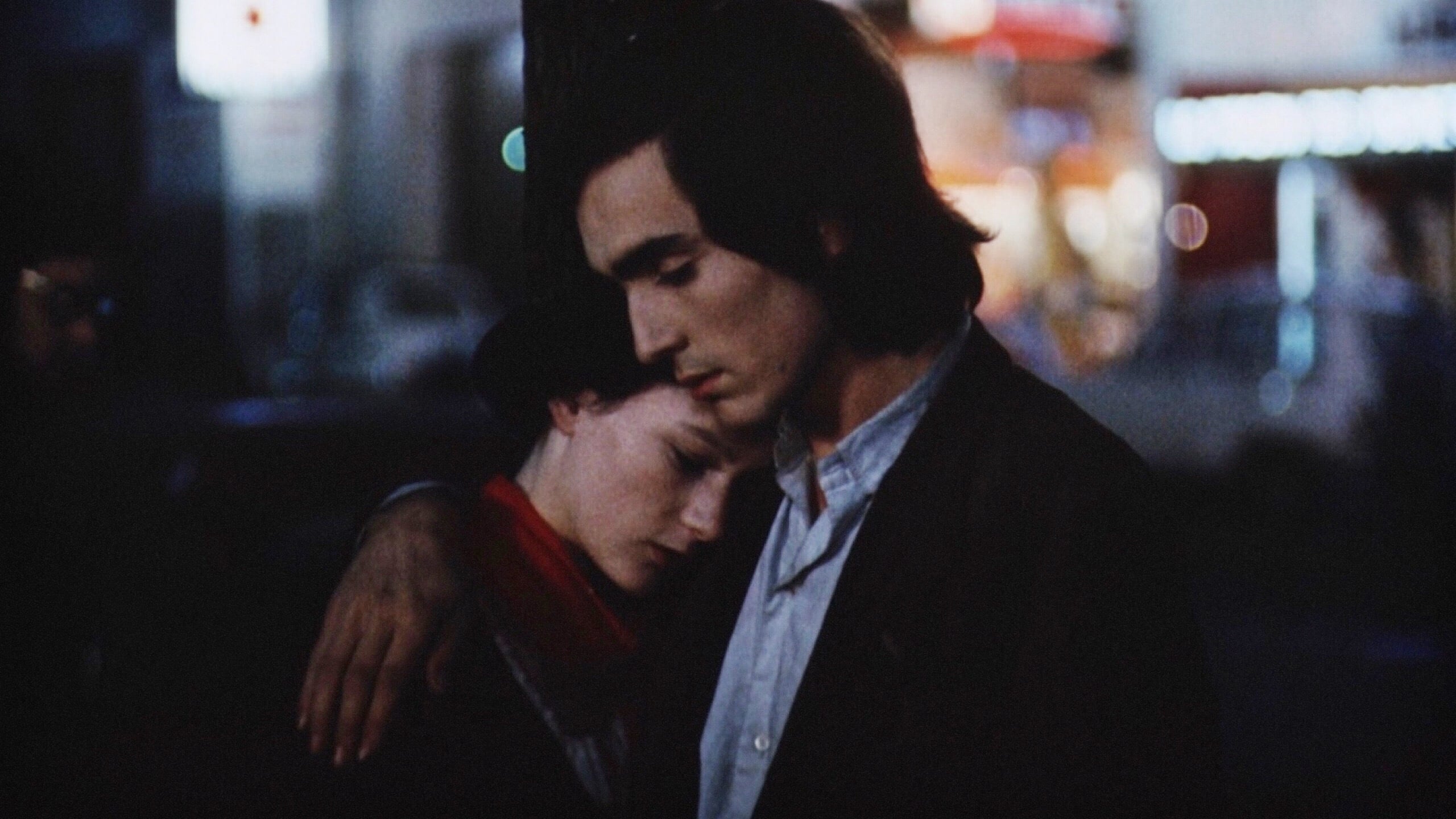
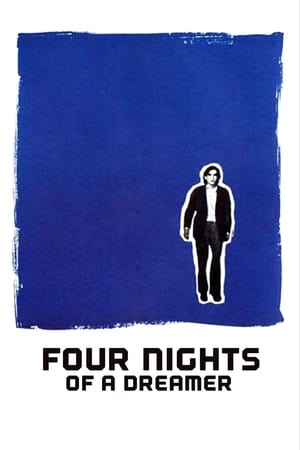
Four Nights of a Dreamer
1971 • 1h 27min • ★ 7.082/10 • France
Directed by: Robert Bresson
Cast: Isabelle Weingarten, Guillaume des Forêts, Jean-Maurice Monnoyer, Giorgio Maulini, Lidia Biondi
Jacques, a young man with artistic aspirations, spends four nights wandering Paris with a young woman, whom he rescued from suicide.
“Four Nights of a Dreamer” is a French film directed by Robert Bresson, released in 1971. The film is based on a short story by Fyodor Dostoevsky and tells the story of a chance encounter between two young people in Paris.
The film follows the story of Jacques, a young artist who is struggling to come to terms with his loneliness and sense of isolation. One night, he meets Marthe, a young woman who is standing on a bridge, contemplating suicide.
Jacques is immediately drawn to her and spends the next four nights trying to connect with her and understand her pain.
The film is notable for Bresson’s unique approach to filmmaking, which emphasizes spare, minimalist storytelling and naturalistic acting.
The film is shot in black and white and features a hauntingly beautiful score by composer Johann Sebastian Bach.
“Four Nights of a Dreamer” is a deeply emotional and moving film that explores themes of love, loneliness, and the human condition.
It is a powerful meditation on the importance of human connection and the transformative power of compassion and understanding.
No products found.
8. Angels of Sin (1943)
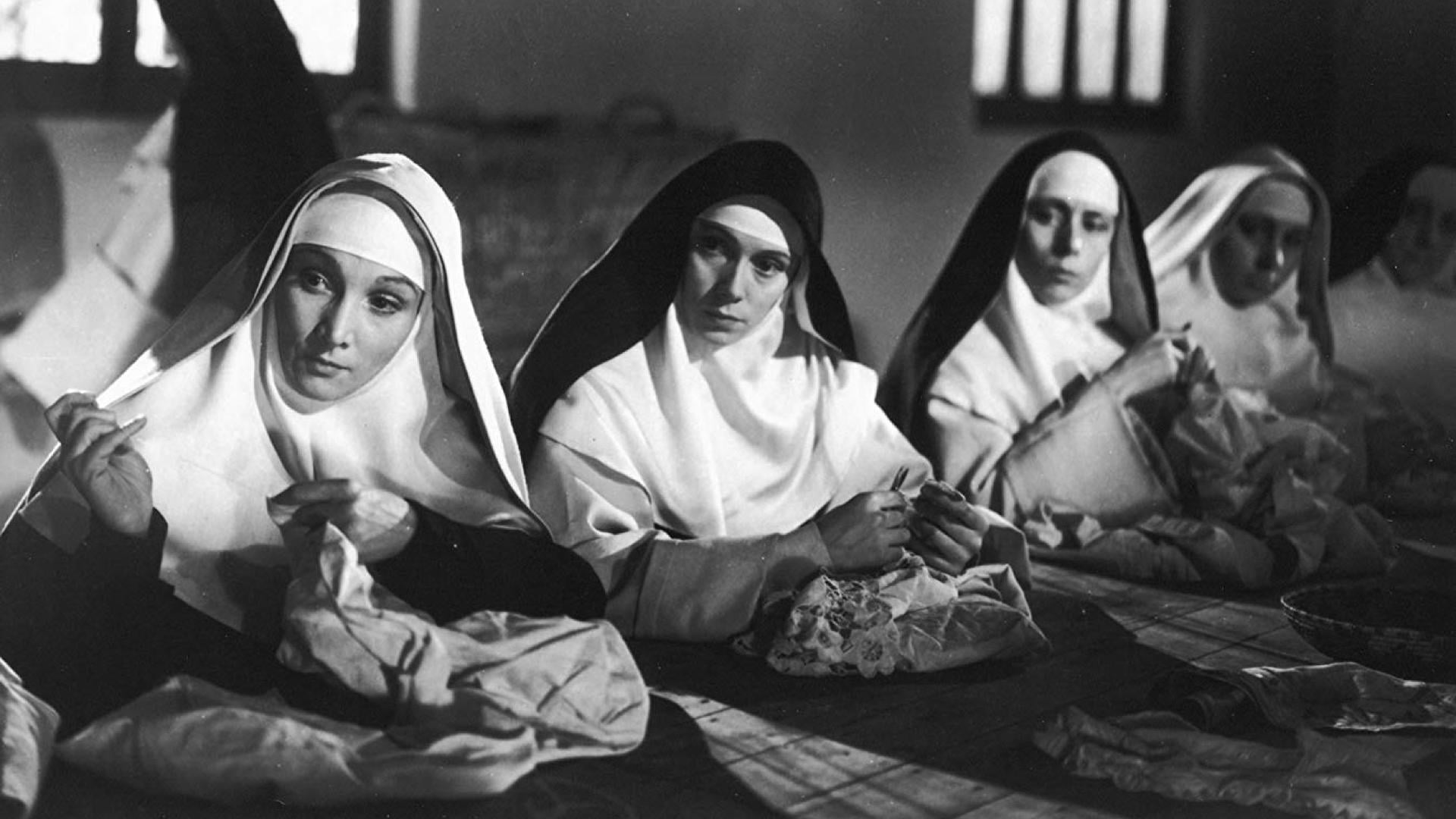
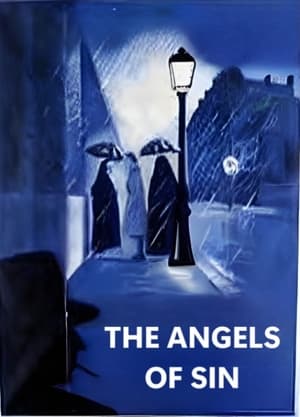
Angels of Sin
1943 • 1h 36min • ★ 6.9/10 • France
Directed by: Robert Bresson
Cast: Renée Faure, Jany Holt, Sylvie, Mila Parély, Marie-Hélène Dasté
A well-off young woman decides to become a nun, joining a convent that rehabilitates female prisoners. Through their program, she meets a woman named Thérèse who refuses any help because she says she was innocent of the crime she was convicted for. After being released from prison, Thérèse murders the actual perpetrator of the crime and comes to seek sanctuary in the convent.
“Angels of Sin” is a 1943 French drama film directed by Robert Bresson, his first feature film. The film tells the story of a group of women who live together in a Parisian apartment, struggling to make a living as seamstresses.
The women, who come from various walks of life, band together to form a makeshift family and support system, but their relationships are strained by jealousy, betrayal, and infighting.
When a new resident arrives, a former prostitute seeking redemption, the dynamics of the household are further tested.
“Angels of Sin” is notable for its exploration of social issues such as poverty, unemployment, and prostitution, and for its focus on the lives of women who are often marginalized in French society.
Bresson’s style is marked by his use of non-professional actors and his spare, observational approach to storytelling, which emphasizes the emotional and psychological nuances of everyday life.
While “Angels of Sin” is less well-known than some of Bresson’s later works, it is still regarded as an important film in his career and a valuable example of his early style.
For viewers who appreciate realistic, character-driven dramas that explore the complexities of human relationships, “Angels of Sin” is definitely worth watching.
No products found.
9. L’Argent (1983)
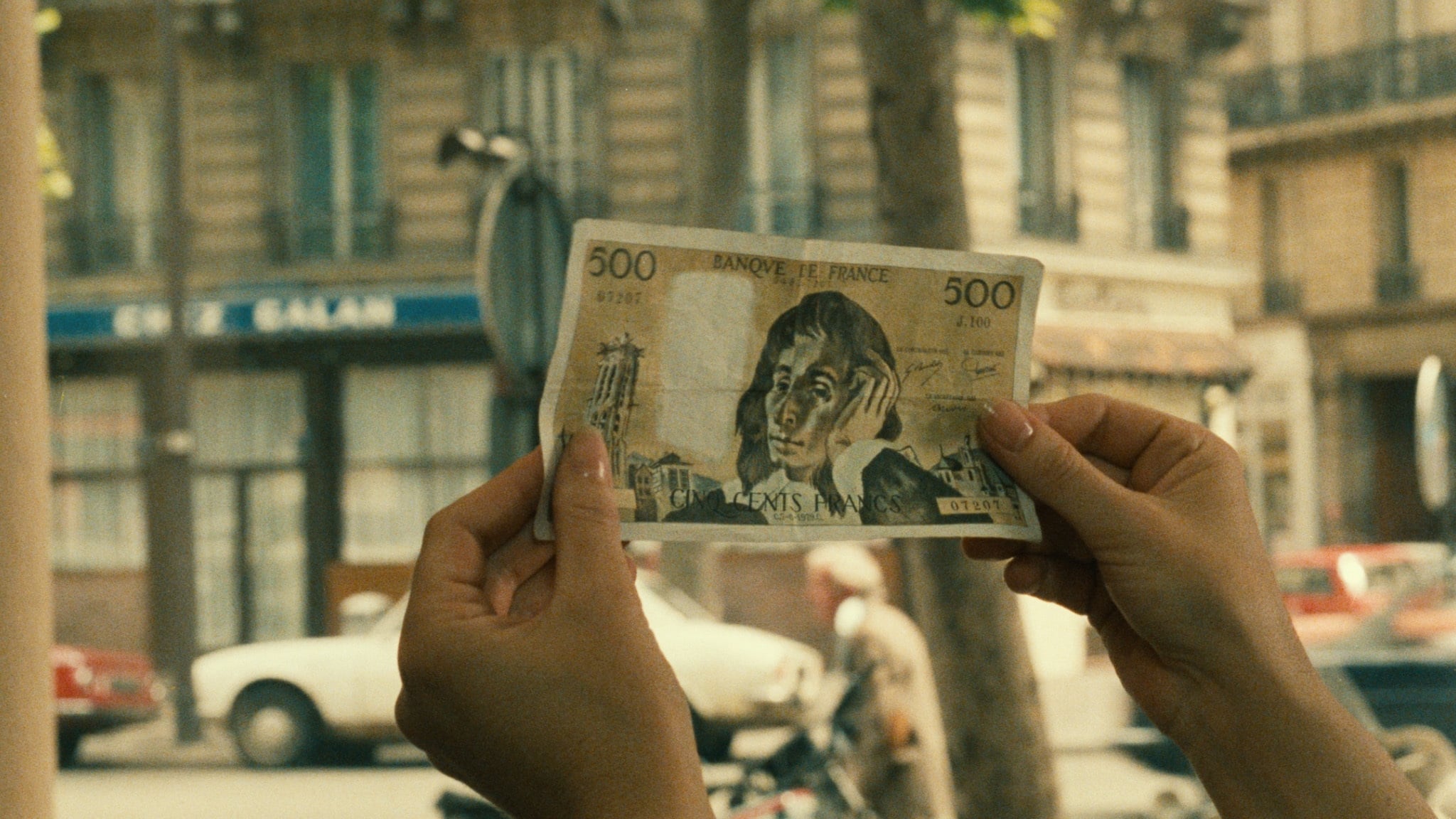
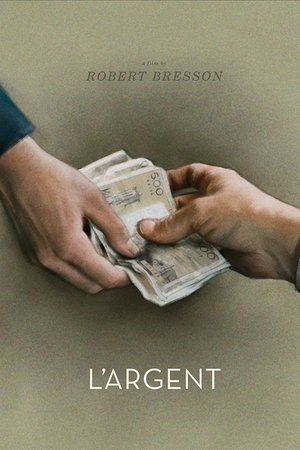
L'Argent
1983 • 1h 25min • ★ 7/10 • France
Directed by: Robert Bresson
Cast: Christian Patey, Vincent Risterucci, Sylvie Van Den Elsen, Michel Briguet, Caroline Lang
A forged 500-franc note is passed from person to person and shop to shop, until it falls into the hands of a genuine innocent who doesn't see it for what it is—which will have devastating consequences on his life.
“L’Argent” is a 1983 French film directed by Robert Bresson. The film is based on a novel by Leo Tolstoy, and it tells the story of a counterfeit bill that circulates through various hands and causes a ripple effect of moral corruption and tragedy.
The film is characterized by Bresson’s signature minimalist style, with spare dialogue and understated performances by the actors.
It is also notable for its use of sound, with various off-screen sounds and effects adding to the tension and drama of the story.
“L’Argent” has been praised for its deep examination of the human condition and the corrupting influence of money on society.
The film explores themes such as greed, power, and the loss of innocence, and it has been interpreted in various ways by audiences and critics alike.
Despite its dark subject matter, “L’Argent” is widely regarded as a masterpiece of cinema and a testament to Bresson’s skill as a filmmaker.
The film has had a profound influence on the world of cinema, and it continues to be studied and analyzed by filmmakers and scholars alike.
No products found.
10. Les Dames du Bois de Boulogne (1945)
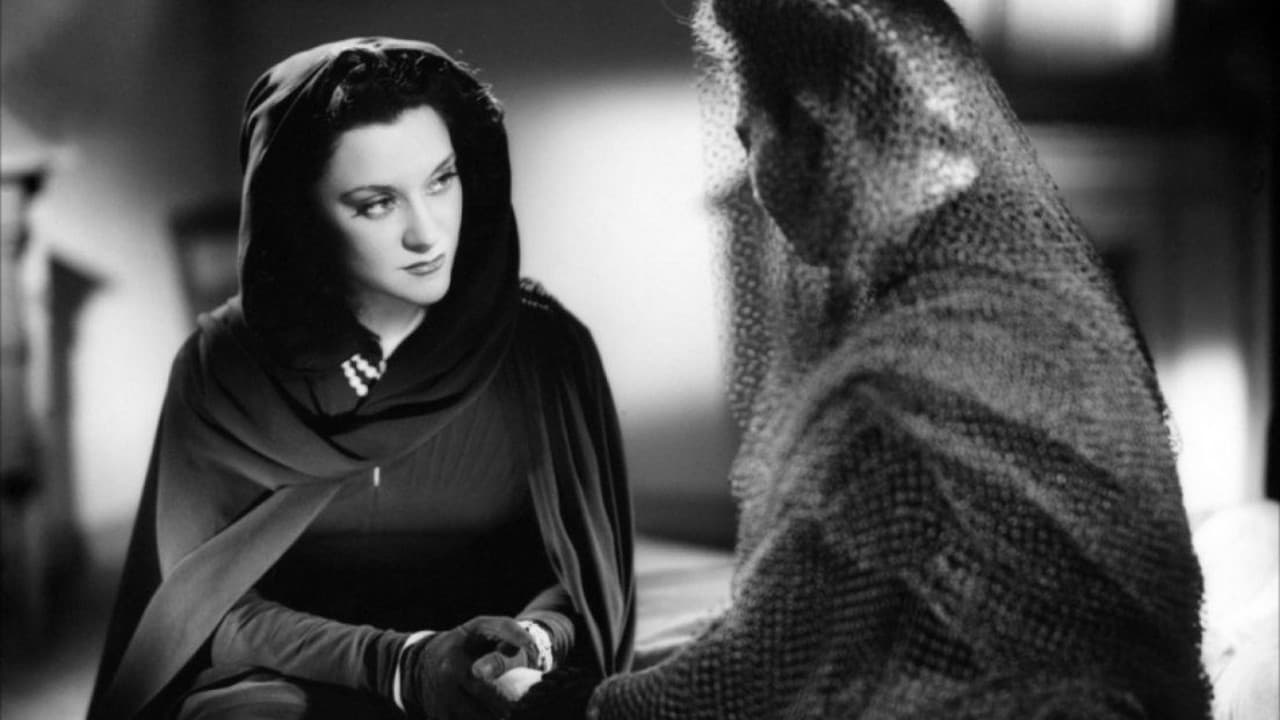
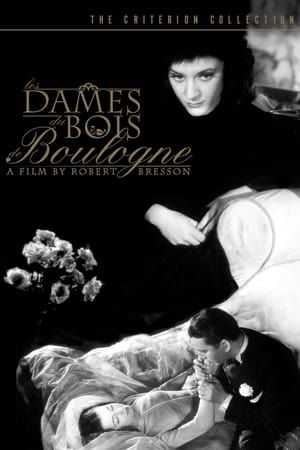
Les Dames du bois de Boulogne
1945 • 1h 24min • ★ 6.906/10 • France
Directed by: Robert Bresson
Cast: Paul Bernard, María Casares, Élina Labourdette, Lucienne Bogaert, Jean Marchat
A love story that follows the maneuverings of a society lady as she connives to initiate a scandalous affair between her aristocratic ex-lover and a prostitute.
“Les Dames du Bois de Boulogne” is a 1945 French film directed by Robert Bresson.
The film tells the story of a woman named Hélène who seeks revenge on her former lover, Jean, by orchestrating a relationship between him and a woman named Agnès, whom she believes to be beneath him.
Hélène’s plan backfires, however, when Jean and Agnès fall in love and Hélène is forced to confront the consequences of her actions.
The film is notable for its exploration of themes such as love, betrayal, and revenge, as well as for its use of non-professional actors and Bresson’s signature minimalist style.
The film has been praised for its emotional depth and its ability to capture the subtleties of human relationships, as well as for Bresson’s skill as a director.
“Les Dames du Bois de Boulogne” was not initially well-received by critics, but it has since been recognized as a classic of French cinema and an important work in Bresson’s career.
The film has influenced many filmmakers and continues to be studied and analyzed for its exploration of the human psyche and its themes of love and revenge.
- Shrink-wrapped
- Paul Bernard, Mara Casares, Elina Labourdette (Actors)
- Robert Bresson (Director) - Denis Diderot (Writer)
- English (Subtitle)
- English (Publication Language)
11. The Devil, Probably (1977)
“The Devil, Probably” is a French film directed by Robert Bresson, released in 1977. The film is a bleak and unflinching portrayal of a disaffected youth who is struggling to find meaning and purpose in a world that he sees as fundamentally corrupt and meaningless.
The film follows the story of Charles, a young man who is deeply disillusioned with society and feels that there is no hope for the future.
He is haunted by a sense of futility and despair, and he turns to drugs and promiscuity as a means of escape.
As Charles becomes more and more isolated and detached from the world around him, he becomes increasingly fixated on the idea of suicide.
The film explores his mental and emotional state in stark and unflinching detail, and portrays his final act of self-destruction with a sense of resignation and inevitability.
“The Devil, Probably” is a powerful and uncompromising film that explores themes of alienation, despair, and the struggle for meaning and purpose in a world that can seem overwhelmingly bleak and oppressive.
It is a haunting and thought-provoking film that offers a sobering critique of modern society and the ways in which it can dehumanize and isolate individuals.
- Factory sealed DVD
- Antoine Monnier, Tina Irissari, Henri de Maublanc (Actors)
- Robert Bresson (Director)
- English (Subtitle)
- English (Publication Language)
3 Characteristics of Robert Bresson Films
Robert Bresson was a highly influential French filmmaker known for his distinctive style and themes. Here are three characteristics that are often associated with his films:
Spare, minimalist style: Bresson’s films are characterized by their spare, minimalist style.
He often used non-professional actors and avoided using music, elaborate camera work, or other cinematic techniques to manipulate emotions.
Instead, he relied on the power of the story and the performances to convey meaning.
Exploration of spiritual and philosophical themes: Bresson’s films often explore complex moral and philosophical issues, such as the nature of humanity, redemption, and the search for meaning in life. His films tend to be meditative and thought-provoking, rather than action-driven.
Emphasis on the physicality of actions: Bresson’s films often emphasize the physicality of the characters’ actions.
He frequently focused on hands and other physical details, using them to convey the emotions and intentions of the characters.
This approach gave his films a distinctive, tactile quality that was often commented upon by critics and viewers alike.
Overall, Bresson’s films are highly regarded for their intellectual depth, emotional impact, and distinctive style. His influence on world cinema has been profound, and his works continue to be studied and celebrated today.
3 Reasons Why You Should Watch Robert Bresson Films
Sure! Here are three reasons why you should watch Robert Bresson films:
Unique filmmaking style: Robert Bresson was known for his minimalist style, where he used non-professional actors and pared-down dialogue to create a sense of raw emotion and realism in his films.
His use of sound and editing also contributed to his unique filmmaking style. Watching Bresson’s films is a chance to see a master filmmaker at work, pushing the boundaries of what cinema can be.
Deep exploration of the human condition: Bresson’s films often focus on the existential struggles of his characters and explore complex themes such as morality, spirituality, and the nature of being.
His films are a window into the human experience, and watching them can lead to a deeper understanding of ourselves and the world around us.
Influence on cinema: Bresson’s films have had a profound influence on the world of cinema, inspiring many filmmakers and shaping the way that films are made.
His unique style and approach to storytelling have paved the way for other filmmakers to experiment with new techniques and ways of telling stories.
Watching Bresson’s films is not only a chance to appreciate his artistry but also to see the impact that he has had on the world of cinema as a whole.
Best Robert Bresson Films – Wrapping Up
Robert Bresson was a unique and influential director, known for his spare and minimalist approach to filmmaking. His films are often characterized by their austere style, naturalistic acting, and deep, philosophical themes.
Here are some of Bresson’s best films:
“Au Hasard Balthazar” (1966) – This film tells the story of a donkey named Balthazar, who passes through various owners and witnesses the darkness of human nature. The film is a moving meditation on suffering, grace, and redemption.
“Pickpocket” (1959) – This film tells the story of a young pickpocket who becomes increasingly obsessed with his criminal activities, leading to his eventual downfall. The film is a powerful exploration of guilt, redemption, and the human capacity for change.
“A Man Escaped” (1956) – This film is based on the true story of a French Resistance fighter who was imprisoned by the Germans during World War II and managed to escape from prison.
The film is a tense and suspenseful portrayal of the struggle for freedom and the human spirit.
“Mouchette” (1967) – This film tells the story of a young girl named Mouchette, who lives in a rural French village and struggles to find meaning and purpose in her life.
The film is a powerful meditation on the struggles of ordinary people and the search for meaning and purpose in life.
“L’Argent” (1983) – This film tells the story of a young man who becomes involved in a counterfeiting scheme, leading to a chain of events that spirals out of control.
The film is a stark and unflinching portrayal of the destructive power of greed and materialism.
Overall, Robert Bresson’s films are characterized by their spare, minimalist style and their profound and often philosophical themes.
They offer a unique and thought-provoking perspective on the human condition, and are essential viewing for any serious film buff.


![A Man Escaped (The Criterion Collection) [Blu-ray]](https://m.media-amazon.com/images/I/51UgC-X5M0L.jpg)

![Diary of a Country Priest (The Criterion Collection) [DVD]](https://m.media-amazon.com/images/I/41HPU1k3HsL.jpg)


![Mouchette (The Criterion Collection) [DVD]](https://m.media-amazon.com/images/I/41RhTgFxbUL.jpg)
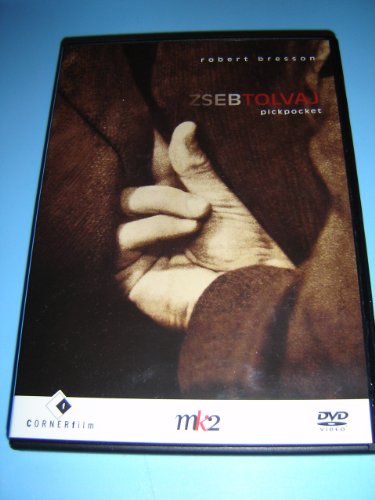
![A Gentle Woman [VHS]](https://m.media-amazon.com/images/I/51QV39QWPSL.jpg)


![Les Dames du Bois de Boulogne (The Criterion Collection) [DVD]](https://m.media-amazon.com/images/I/41Ag6+JkDzL.jpg)

